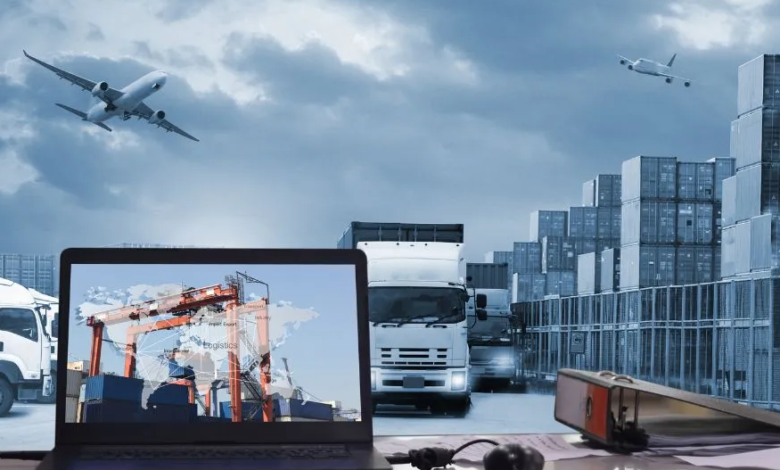The Smart Way to Handle Customs and Shipping Delays

Whether you’re a small business owner importing stock or an individual waiting on a long-awaited overseas purchase, few things are as frustrating as customs or shipping delays. You track your package, see it’s “stuck in transit” or “awaiting clearance,” and immediately wonder what went wrong. While global logistics have come a long way, the reality is that international shipping still involves a complex web of procedures, checkpoints, and regulations — and even the smallest hiccup can slow things down.
Fortunately, there are smarter ways to handle these situations. With the right approach and a bit of preparation, you can avoid unnecessary stress, keep shipments moving, and ensure that any delays that do occur don’t turn into disasters.
Why Customs Delays Happen
It’s easy to think customs officers just hold things up for no reason, but in truth, they’re performing one of the most important functions in international trade — protecting the country’s borders, economy, and consumers.
When a shipment arrives in Australia, customs officials inspect it to ensure it meets import regulations, safety standards, and tax requirements. Sometimes, these checks take only a few hours; other times, they can last days or even weeks depending on the type of goods, their declared value, or missing paperwork.
Delays are especially common when goods fall into restricted or high-risk categories, such as electronics, food, medical equipment, or vehicles. For example, importing a car from Japan to Australia involves strict inspection and compliance procedures that can add weeks to the delivery process. This includes verifying the vehicle’s condition, emissions standards, quarantine checks, and proper documentation.
Understanding that customs’ primary job is protection — not obstruction — helps frame delays as part of a necessary process rather than a personal inconvenience.
Common Causes of Customs and Shipping Delays
Not all delays are created equal. Some are predictable, others completely random. Here are some of the most frequent culprits behind international shipping slowdowns:
- Incomplete or incorrect documentation – Missing invoices, vague product descriptions, or incorrect values are among the most common reasons for customs delays. Customs needs accurate data to calculate duties and assess legality.
- Unpaid duties and taxes – If GST, import fees, or duties haven’t been paid upfront, your goods may be held until payment clears.
- Random inspections – Even if everything is perfect, shipments can be pulled for spot checks at random.
- Restricted or prohibited items – Goods that require permits or fall under special categories (like biosecurity or hazardous materials) undergo extra scrutiny.
- Peak seasons – Major shopping events like Christmas, Black Friday, and Lunar New Year often cause global backlogs.
- Global disruptions – Events like port strikes, extreme weather, or political tensions can delay shipments beyond anyone’s control.
- Freight congestion – Large shipping ports and courier hubs sometimes experience bottlenecks, slowing the flow of goods.
Knowing these common causes helps you plan ahead and manage expectations before frustration sets in.
Documentation: The Key to Faster Clearance
If there’s one thing that makes or breaks the customs process, it’s paperwork. Proper documentation is your golden ticket to getting goods cleared quickly and without issue.
At a minimum, every international shipment should include:
- A commercial invoice with detailed product descriptions, quantities, and values
- A packing list showing what’s inside each container or package
- Shipping documentation, such as a bill of lading or airway bill
- Any permits or licences required for specific goods (e.g. electronics, chemicals, food, or vehicles)
- Proof of payment for customs duties and taxes (if prepaid)
Always make sure your declared values match your invoices — under-declaring to save on duties is a common mistake that can lead to heavy penalties or confiscation. It’s also smart to use clear, descriptive product names rather than generic ones like “parts” or “samples.” Customs officers appreciate transparency, and the more detail they have, the quicker they can process your shipment.
See also: Precision Matters: Tuning the Tech That Watches the Road for You
Choose the Right Shipping Partner
The courier or freight forwarder you choose can make a massive difference in how smoothly your shipment travels. Not all carriers handle customs equally well — some specialise in fast clearance, while others rely on third-party brokers who may not be as efficient.
When selecting a carrier or freight company, look for one that:
- Has a strong presence in both the origin and destination countries
- Offers door-to-door tracking and regular updates
- Provides customs brokerage services or works closely with experienced brokers
- Can assist with duty calculation and documentation before shipment
- Has responsive customer support
If you’re dealing with high-value or complex imports, consider hiring a licensed customs broker. They handle everything from paperwork to liaising directly with customs officials, significantly reducing the risk of mistakes or delays.
How to Handle Delays Without Losing Your Cool
Even with the best preparation, delays can still happen. The trick is knowing how to respond calmly and effectively.
- Track your shipment regularly – Use your tracking number to monitor movement. Most major couriers provide real-time updates and will flag when a package is held at customs.
- Communicate with the carrier – If a delay appears, contact your shipping provider directly. They can often tell you the reason for the hold-up and what steps to take next.
- Provide requested information quickly – If customs asks for additional documents or clarification, respond as soon as possible. Even a day’s delay in replying can add several days to clearance.
- Avoid multiple contacts – Calling or emailing too many people (for example, both the seller and multiple courier offices) can create confusion. Stick to one point of contact until the issue is resolved.
- Stay polite and patient – Customs officers and couriers are dealing with thousands of shipments daily. A respectful tone goes a long way in getting help faster.
Sometimes, just showing that you’re proactive and cooperative can speed things up.
Manage Expectations with Timing and Planning
If you import goods regularly, timing is everything. Plan shipments around known busy periods and global holidays. For example, avoid sending large orders right before Christmas or Chinese New Year — both notorious for slowing down international logistics.
Build a buffer into your delivery timeline. If you expect goods in three weeks, plan for four or five, especially for sea freight. For air freight, delays are less frequent but still possible due to customs clearance or weather disruptions.
If your business relies on consistent stock availability, consider staggered shipments — smaller, more frequent orders instead of one large delivery. That way, if one shipment is delayed, others can still arrive on time.
Be Proactive About Duties and Fees
One of the smartest ways to prevent customs delays is to prepay any taxes and duties. Many international couriers now offer “Delivered Duty Paid” (DDP) services, where all charges are calculated and paid upfront. This ensures your shipment won’t be held for payment when it arrives in Australia.
Keep in mind that customs duties and GST are based on the item’s declared value, not necessarily what you paid after discounts. Always double-check how duties are calculated to avoid underpayment issues.
How Businesses Can Minimise Disruption
For businesses that rely on international trade, shipping delays can affect cash flow, customer satisfaction, and production schedules. Mitigating these risks requires a strategic approach:
- Maintain safety stock – Keep a small surplus of inventory on hand to cushion against unexpected delays.
- Diversify suppliers – Avoid relying on a single overseas supplier or shipping route.
- Use bonded warehouses – These facilities allow goods to be stored tax-free until ready for local distribution.
- Automate tracking and reporting – Use software that integrates with courier systems to monitor shipments and alert you to delays instantly.
A bit of foresight and redundancy can save businesses from costly downtime.
Turn Delays into Lessons
While shipping setbacks are never fun, they can teach valuable lessons about improving your logistics processes. Every delay reveals something — maybe it’s a documentation gap, a weak courier link, or a timing issue you can fix next time.
Keep notes on what caused each delay and how it was resolved. Over time, you’ll build a clearer picture of how to streamline your imports and reduce future risks.
In today’s interconnected world, shipping delays are an inevitable part of global trade — but they don’t have to derail your plans. By planning ahead, staying informed, and working with experienced partners, you can turn international logistics from a source of stress into a smooth, predictable process. The smarter you are about managing the details, the more control you’ll have over the outcome — and that’s the real secret to keeping your imports moving and your peace of mind intact.





